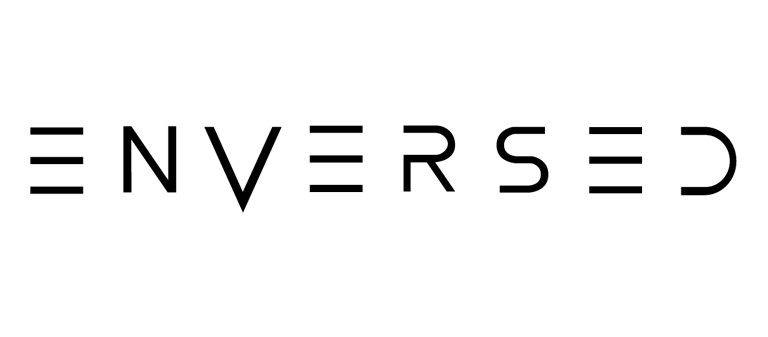Idustry Project Enversed
Project description
an interactive strategy game designed for the Gamechangers Expo. The core idea was to simulate how players design and evaluate automated decision making systems (ADM) used in public policy areas like policing, urban planning, and welfare. The game places players in complex scenarios where they must analyze data, debate with peers, and choose between fairness, efficiency, and transparency revealing how technical systems have real ethical consequences.
Context
Our project is an interactive simulation for the Gamechangers Expo that puts players in the role of public decision makers designing and evaluating automated systems. The core experience focuses on the ethical and societal consequences of algorithmic decision making in sectors like urban planning, policing, and welfare. Players are challenged to make policy decisions based on incomplete or biased data, while balancing trade offs between efficiency, fairness, and transparency.
Drawing on real world case studies such as the Dutch childcare scandal, predictive policing controversies, and environmental aid misallocations the simulation lets players configure algorithms, see projected outcomes through data visualizations, and reflect on the impact across different stakeholder groups. These consequences evolve over time, emphasizing that moral clarity is often missing in real world automation scenarios.
The experience is designed to be both tangible and collaborative, using touchscreen inputs alongside physical elements like scenario cards or tokens. This allows 2-4 participants to engage in a shared 15 minute gameplay loop that includes setup, decision making, and reflection. The system is standalone, scalable, and requires no internet connection, aligning with Enversed’s goals for hands on, immersive, and educational experiences.
Rooted in serious game design principles and inspired by titles like Papers, Please, the simulation avoids simplistic moral binaries. Instead, it creates space for discussion, experimentation, and ethical exploration. Participants leave not just having played a game, but having grappled with the real dilemmas of data driven governance.
Results
Our main outcome is a scenario-based interactive prototype built in Figma that demonstrates how automated decision making (ADM) systems can produce complex ethical consequences. Though it is not fully playable software, the prototype simulates one complete interaction cycle: configuring a decision system, seeing outcomes unfold for different stakeholders, and entering a reflection phase. It is designed as a proof-of-concept to test and communicate our core design ideas.
This clickable experience takes the user through a fictional public policy dilemma (deploying resources in a smart city scenario) where they make a decision using incomplete or biased data. Players see the downstream effects through simplified visualizations and character feedback, highlighting unintended consequences such as inequality or loss of public trust. The prototype ends with a reflection screen that introduces ethical prompts tied to fairness, transparency, and bias.
Validation:
We conducted informal peer testing and walkthroughs, which provided insight into usability and narrative clarity. The prototype effectively sparked discussions among testers about ethical responsibility in automation. While it is a one time play experience, it successfully conveys the burden of choice and exposes the risks of designing without considering human impact.
Technology Readiness Level (TRL):
The project is currently at TRL 3/4. It is an early-stage concept validation using a digital prototype, with clear potential for expansion into a functioning installation or game. It does not yet include backend logic, real time data interaction, or replayability, but it demonstrates a working scenario structure and aesthetic direction.
Key Insights:
- One scenario is enough to trigger ethical reflection. Even with a short interaction, players began to question whether they made the “right” call and what values were prioritized.
- Visual storytelling and minimal friction help convey complex ideas. A simple Figma interface allowed users to focus on the core dilemma rather than navigating complex mechanics.
- There's clear potential for modular expansion. Feedback suggested the format could easily be adapted into multiple domains (welfare, education, environment) if further developed.
In summary, while the current version is limited in interactivity and scope, it represents a compelling starting point. It demonstrates that ethical dilemmas in ADM can be communicated in short, focused experiences and sets the groundwork for future development into a physical or digital installation aligned with Gamechangers Expo goals.
About the project group
We are a multidisciplinary team of six students from Fontys University of Applied Sciences, combining expertise in software development and digital media. Our team consists of four students from the Software Engineering program and two from the Communication & Multimedia Design (CMD) program. Together, we bring both the technical skill to build robust interactive systems and the design sensibility to craft engaging, intuitive experiences.
Our collaboration is rooted in agile, iterative development. We work in weekly sprints with clearly defined roles such as project manager, backend and frontend developers, game/UX designer, and ethics/research lead to ensure steady progress. Communication and feedback loops are central to our process: we hold regular check-ins, review sessions, and collaborative brainstorms to refine our direction and respond quickly to challenges.
This project is driven by a shared interest in the intersection of ethics, technology, and user experience. We believe serious games can be a powerful tool to make abstract issues like automated decision making tangible, understandable, and emotionally impactful. By combining our strengths, we aim to create an installation that’s not only technically solid but also thought-provoking and meaningful.


